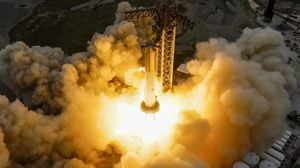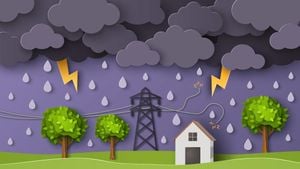Political dynamics in Jammu and Kashmir are experiencing another shift as the region gears up for the upcoming Panchayat elections. Following the recently concluded Assembly elections, where the National Conference (NC) emerged prominently, parties are scrambling to connect with voters, especially since many have shifted strategies since the 2018 elections.
After the Lok Sabha and Assembly elections were conducted successfully without major hiccups, the focus has now turned to the Panchayat elections set for next year. The elections are significant as they will determine local governance across the region. Political heavyweights such as the NC, BJP, and Congress are ramping up efforts to mobilize their bases and present clear strategies to elect their candidates.
The last Panchayat elections took place amid widespread boycotts from key parties like the National Conference and the Peoples Democratic Party (PDP) due to concerns over centralized governance following the abrogation of Article 370 and Article 35-A. At the time, voter turnout was varied, with Jammu seeing 83.5% participation compared to just 44.4% in Kashmir during the nine-phase election. The overall turnout was marked at 74%, indicating some level of engagement even amid boycotts.
This time, preparations are already underway as political parties eye the substantial electorate, which consists of over 65 lakh eligible voters. A total of 4,291 Panchayats and 33,597 Panch seats will be contested, making this election significant not just for local governance but for local political narratives as well. Key districts like Jammu, Rajouri, and Baramulla are expected to be battlegrounds as parties vie for control.
The NC’s renewed engagement with the electorate aims to fortify its position after securing 42 seats during the Assembly elections, creating a coalition with Independents to govern. Rattan Lal Gupta, NC's Jammu province chief, reaffirmed their commitment to outreach, emphasizing the importance of connecting with community needs: "We will connect more people with our policies to ascertain success in the upcoming Panchayat elections."
Meanwhile, the Bharatiya Janata Party is pivoting toward aggressive membership campaigns as they strive to expand their vote share. According to Sat Sharma, the state president, unity among their leadership and grassroots workers is key to solidifying their presence as they prepare for the elections.
On its part, the Congress party is undergoing introspection following its Assembly performance, with state president Tariq Hameed Karra mentioning the involvement of fact-finding committees to identify weaknesses within the party. This introspective stance is intended to counteract the popular narratives driving voter sentiment.
Historically, the Congress has faced criticisms for failing to adapt effectively to the changing political landscapes of Jammu and Kashmir, with grassroots leaders emphasizing the need for change. "We cannot keep carrying the burden of leaders who have become liabilities rather than assets," echoed one block president, advocating for new blood and clearer strategies for voter engagement.
With the State Election Commission actively revising voter lists, they are committed to ensuring all voices are accounted for. Special camps have been set up on specific dates to handle any necessary registrations, deletions, or corrections before the final voter list is released on January 6, 2025.
Political analysts view the upcoming Panchayat elections not only as local governance choices but also as indicators of broader political trends within Jammu and Kashmir. For national parties like the BJP, Congress, and regional players like the NC and PDP, these elections are not just about winning seats; they are also about restoring or redefining their relevance with the electorate.
The political atmosphere is charged as strategies are formed and tactics polished, with all eyes on how these developments will affect governance and communal connections within Jammu and Kashmir. Will the voter turnout reflect the enthusiasm from political parties, or will it mirror the apathy seen during boycotts of past elections? Only time will tell as the region prepares for this pivotal moment.
Politics throughout the world is constantly shifting, but the unique case of Jammu and Kashmir requires careful watching as each election reshapes the narratives of governance and citizen representation. With the reopening of local political engagement, residents are hopeful for change, accountability, and re-establishing their voices within the larger narrative of democracy.



